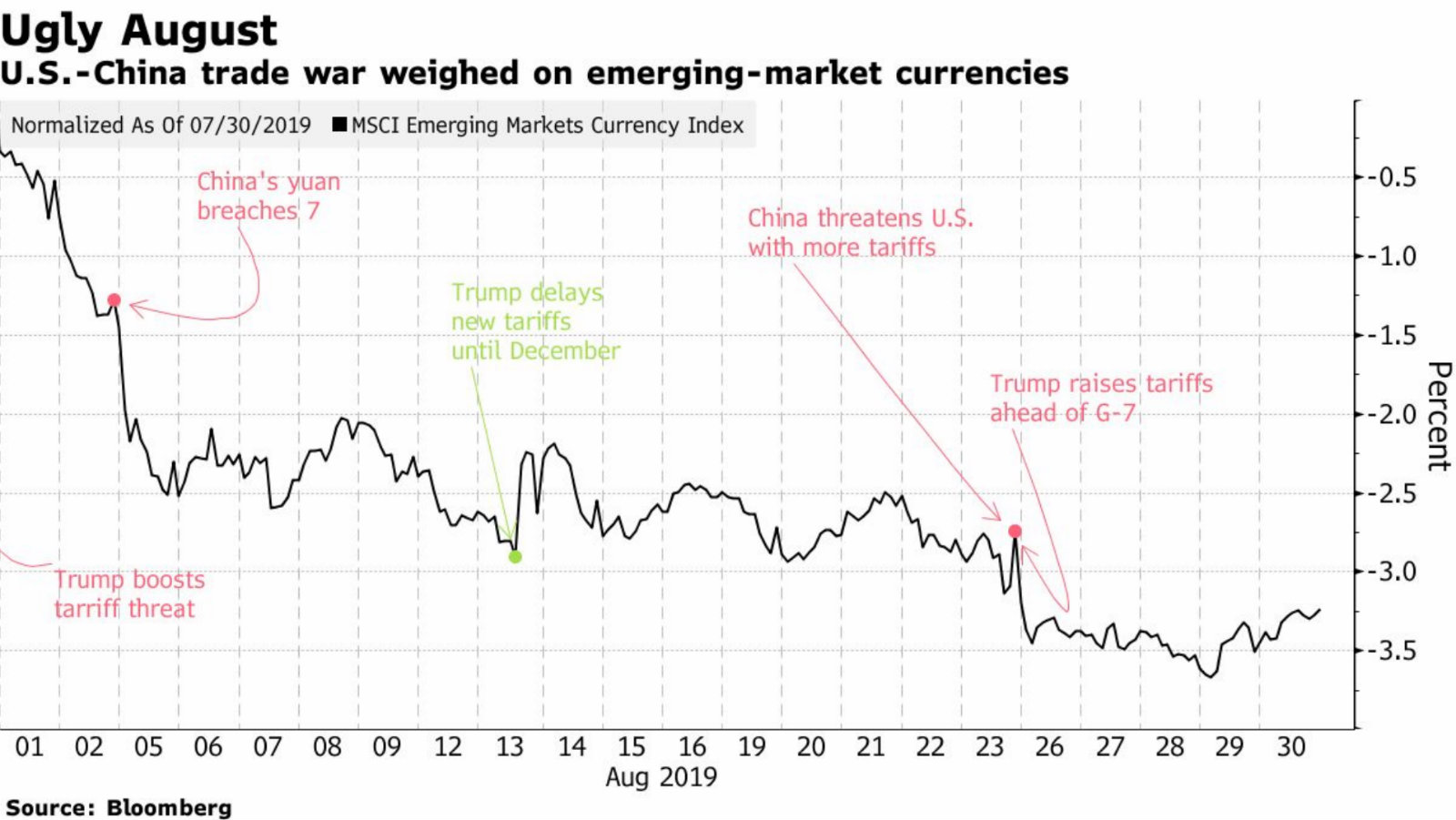Emerging markets suffer worst August in decades

Emerging markets suffer worst August in decades: EM stocks suffered USD 873 bn in losses last month and currencies experienced their worst August since 1997, Bloomberg says. The iShares MSCI EM ETF saw a record increase in short interest as yearly gains on EM ETFs were almost entirely wiped out, and USD bond sales hit a 42-month low.
A perfect storm: The EM headache was caused by a handful of factors, the most important of which originated in the US. The tone for August was set at the end of July, when Fed Chairman Jay Powell uttered the fateful words “mid-cycle adjustment.” Cue a market panic that was compounded shortly after by President Donald Trump’s announcement of yet more tariffs on Chinese goods. Investors were given an extra incentive to pull money from EMs after at least 12 central banks cut rates, taking their cue from the Fed’s 25 bps cut in July. Turmoil in EMs also played its part: The TRY fell 4% as Turkey’s 2020 growth prospects were halved, while in the middle of the month primary elections in Argentina resulted in the second-biggest daily market crash in history and what looks to be a ninth sovereign default.
It might not be getting any better: In the absence of a US-China trade agreement, the EM sell-off is likely to continue, analysts told Bloomberg. “September will be more of the same,” said Brendan MacKenna, FX strategist at Wells Fargo. “Even though China laid out their retaliation plans, it wouldn’t surprise me if they got even more aggressive with countermeasures.” Eric Baurmeister, head of Morgan Stanley’s EM debt team, said that investors need to see evidence of Washington and Beijing coming together before EM fortunes start to change. “The benefit of the doubt is gone, and the market needs to see documents signed, trade agreements done before they get really excited.”